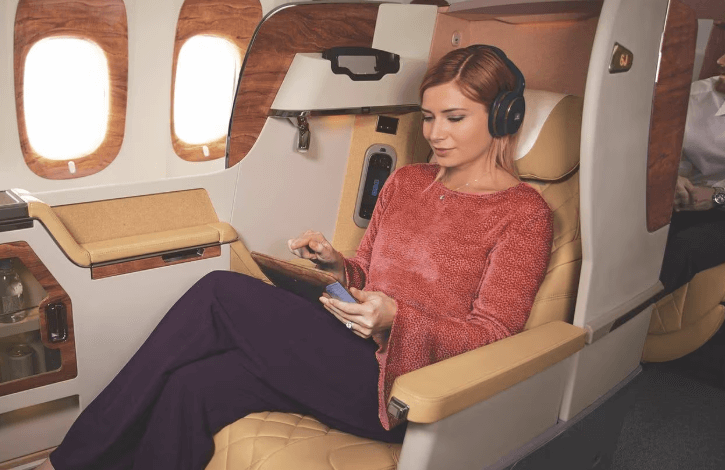Business Class Flight Tickets: Everything Travelers Need to Know

Business class flight tickets represent a gateway to premium air travel, offering a dramatically enhanced experience compared to economy class. Understanding what these tickets include, how they’re priced, and how to maximize their value enables travelers to make informed decisions about when business class justifies the additional investment. The world of business class tickets encompasses far more than just a seat on an aircraft—it’s a comprehensive travel experience that begins at departure and continues until arrival.
Components of Business Class Tickets
Business airline tickets bundle numerous amenities and services that collectively create the premium experience. The most visible component is the enhanced seating, featuring substantially more space, comfort, and privacy than economy. On long-haul international routes, these seats typically convert into lie-flat beds, allowing passengers to sleep comfortably during overnight flights. The ability to arrive well-rested at distant destinations justifies the premium for many business travelers.
Priority services included with business class tickets begin at the airport. Dedicated check-in counters minimize waiting time, while priority security lanes at participating airports expedite the screening process. These time-saving benefits prove particularly valuable for frequent travelers navigating busy airports during peak periods. The cumulative time saved across multiple trips adds up significantly for regular business class passengers.
Lounge access constitutes one of the most valued components of business class tickets. These exclusive spaces provide quiet retreats from crowded terminal gates, offering comfortable seating, complimentary food and beverages, business facilities, and often shower suites. The quality of lounges varies considerably between airlines and airports, with premium carriers operating flagship lounges that rival five-star hotels.
Enhanced baggage allowances accompany business class tickets, typically permitting two or three checked bags weighing up to 70 pounds each. This generous allowance benefits travelers on extended trips or those transporting equipment and materials. Priority baggage handling ensures checked luggage appears among the first on arrival carousels, streamlining the arrival process.
In-flight catering in business class far exceeds economy standards. Multi-course meals prepared from fresh ingredients and served on proper dishware with metal utensery create dining experiences that rival ground-based restaurants. Many airlines offer à la carte dining, allowing passengers to order meals on their preferred schedule rather than during set service times.
Entertainment systems in business class feature larger screens, better sound quality, and more extensive content libraries than economy. Premium headphones or noise-canceling earbuds enhance the audio experience. These systems provide hours of movies, television shows, music, and games to occupy passengers during long flights.
See also: Battery Life, Display, Portability: Laptop Specs Explained
Fare Structures and Ticket Types
Business class tickets come in numerous fare categories, each with different pricing, flexibility, and benefits. Understanding these distinctions helps travelers select appropriate tickets for their specific needs and circumstances. At the broadest level, business class fares divide into published fares available to all travelers and corporate negotiated rates available only to specific companies.
Published fares include various subcategories ranging from deeply discounted promotional fares to fully flexible refundable tickets. Promotional fares offer the lowest prices but typically impose significant restrictions including advance purchase requirements, minimum and maximum stay rules, and limited or no change flexibility. These tickets suit leisure travelers with firm plans who book well in advance.
Semi-flexible fares occupy a middle ground, allowing changes for fees plus any applicable fare difference. These tickets cost more than promotional fares but less than fully flexible options. They appeal to travelers who desire some flexibility without paying premiums for unlimited changes.
Fully flexible refundable fares command the highest prices but impose no change fees and permit full refunds upon cancellation. Corporate travelers whose schedules frequently change often require this flexibility despite the cost premium. These fares also typically accrue maximum mileage and elite status credits.
Corporate negotiated fares represent agreements between airlines and major corporate customers. These private fares offer discounts from published rates in exchange for volume commitments. Corporations negotiate terms including fare levels, change flexibility, and additional benefits. Only employees of participating companies can access these special rates.
Award Tickets and Mileage Redemptions
Business class award tickets redeemed with accumulated frequent flyer miles provide an alternative to cash purchases. The value proposition of award tickets depends on various factors including the cash price of equivalent tickets, the number of miles required, and any taxes and fees charged on awards.
Award availability—the number of seats airlines make available for mileage redemption—varies dramatically between routes, seasons, and even days of the week. Airlines use sophisticated inventory management to balance award seats against paid bookings. Popular routes during peak seasons often show limited or no award availability, while less traveled routes may have ample seats available.
Partner airline redemptions expand award booking possibilities. Major airline alliances—Star Alliance, Oneworld, and SkyTeam—allow members to redeem miles earned with one carrier for flights on partner airlines. This flexibility provides access to more routes and potentially better availability than limiting searches to a single carrier.
Award ticket pricing follows complex charts that vary by distance, region, and sometimes even specific routes. Some airlines use fixed award charts with set mileage prices for different routes, while others employ dynamic pricing where mileage requirements fluctuate based on demand and cash fare levels. Understanding the award structure of relevant programs helps travelers identify the best redemption opportunities.
Co-pay or points-plus-cash options allow travelers to supplement mileage redemptions with cash payments. These options provide flexibility





